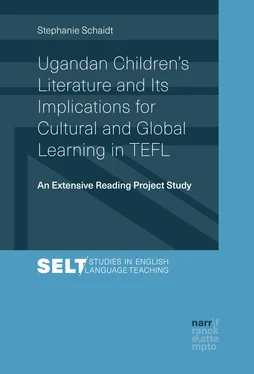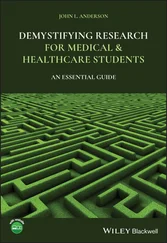1 ...8 9 10 12 13 14 ...34 Although it is without doubt important and necessary to take ideas of anti-racist pedagogy and related concepts into account, these approaches also entail various problematic aspects. Kalpaka and Räthzel (1990) wrote a book on the Schwierigkeit, nicht rassistisch zu sein [difficulty of not being racist], of which the title already points to the problem of the near-impossibility of not being racist. Taguieff (1998) speaks of antiracism in crisis. He criticises that when the topic ‘race’ is shifted to a cultural level it allows for a replication of racism which is neither wanted nor predicted, particularly not by the antiracists themselves (ibid., pp. 238–239). By accepting culture as a “neue und heimlich rassenbildende Kagetorisierung [new and secretly race-forming categorisation]” (ibid., p. 243; my translation), antiracism rather perpetuates what it intends to oppose, he explains. According to him, the concept, therefore, remains stuck in a binary of oppositions: racism as bad and evil, antiracism as good.
Particularly in a school context it is problematic to apply this black-and-white way of thinking since it should not be the aim of education to stigmatise children as ‘racists’, also and particularly not in FLT. As Fäcke (2011, p. 176) notes
[d]ie Dichotomisierung der eigenen und der fremden Kulturen und jegliche Einschätzung von Verhaltensweisen als rassistisch führen zu einer kontraproduktiven Stagnation. Wenn jegliches Denken und Handeln als rassistisch interpretiert wird, dann sind vermeintlich ‘richtige’ und politisch korrekte Handlungsweisen von vornherein ausgeschlossen. [the dichotomization of own and foreign cultures and the evaluation of behaviour patterns as racist lead to counter-productive stagnation. When any thought and action is interpreted as racist, then allegedly ‘right’ and politically correct actions are excluded from the outset.] (My translation)
Nevertheless, in my eyes, focusing more on the reflection of racist structures and power asymmetries in cultural learning is essential to counteract tendencies of othering.
2.8 Globalisation and Global Education
Think about an eleven-year-old student in a school in a large city anywhere in the world today. Their life will undoubtedly be affected by the processes of globalisation in a multitude of ways. To name but a few, these could include: the languages spoken within the school; the technology they use to further their learning; the focus of the school curriculum; the origin of the clothes they wear; the cultural mix of students within the school; and the origin of the food they eat during their lunch break. In short, processes of globalisation are increasingly affecting the lives of most (if not all) people in the world, but they do so in different, complex, unequal and contested ways. (Peterson & Warwick, 2015, p. 5)
As the quote illustrates, our world is interconnected on a social, political, technological, economic, ecological and cultural scale. The role of culture in a global age and questions concerned with cultural mixing stretch into TEFL (Lütge, 2015b, p. 7). Many issues people are faced with in an increasingly globalised world are beyond the scope of the bipolar concept of understanding ‘the other’ or intercultural learning and thus present new challenges to the EFL classroom.
Since the 1990s, ‘globalisation’ has been a buzzword dominating political discussion and is “often used very loosely and, indeed, in contradictory ways” (Robertson, 1992, p. 2). Many scholars with various research backgrounds have contributed to academic discussion on this topic (Appadurai, 1996, 2001; Bauman, 1998, 2007, 2012; Beck, 2006; Giddens, 1990, 1999; Robertson, 1992). Giddens (1990, p. 64) defines globalisation as “the intensification of worldwide social relations which link distant localities in such a way that local happenings are shaped by events occurring many miles away and vice versa”. It is commonly looked upon as a dynamic and powerful force and is both appreciated and severely critiqued.
Scholars repeatedly point to the ‘risks’ people are faced with in a globalised world (Beck, 2006; Giddens, 1999). There are many ongoing wars and conflicts, a growing number of people are forced to flee from war areas, gender imbalances prevail, fear of terrorism impacts societies and climate change has effects on people around the world. Beck (2006, 2007) named the world we live in a “world risk society”.
As Peterson and Warwick state in the quote cited at the outset of this chapter, globalisation has, however, different effects on different people. It is, therefore, an asymmetrical process. Economic and political inequalities may be seen as inherent in global power relations. Bauman (1998, p. 71) argues that negative consequences of globalisation are rooted in instabilities brought on by global capitalism:
Globalisation has given more opportunities for the extremely wealthy to make money more quickly. These individuals have utilised the latest technology to move large sums of money around the globe extremely quickly and speculate ever more efficiently. Unfortunately, the technology makes no impact on the lives of the world poor. In fact, globalisation is a paradox; while it is very beneficial to a very few, it leaves out or marginalizes two thirds of the world’s population.
These developments are firmly rooted in history, as colonialism and neo-imperialism have a strong influence on power relations worldwide, Bauman further explains. Appadurai (1996, p. 17) moreover understands globalisation as a “deeply historical, uneven and even localizing process” and points out that it should not be equated with cultural homogenisation or Americanisation because “different societies appropriate the materials of modernity differently” (ibid.).
The concept of global education in the EFL classroom which has been developed over the last few decades focuses on global ‘risks’. As will be further elaborated in this chapter, it does not yet, however, take power asymmetries and historical contexts sufficiently into account.
The fact that global education is regarded as “a transdisciplinary and transcurricular task” (Volkmann, 2015, p. 30), discussed in various fields (e.g. pedagogy, political education) and inspired by different reference disciplines (e.g. critical theory, critical pedagogy), makes it necessary to begin with some background information concerning the definition and origin of the concept.
Despite or because of this grounding in diverse academic discourses, the term global education “still remains fuzzy and ambivalent” (Lütge, 2015b, p. 8). There are inconsistencies in the use of terminology, as Pike (2000, p. 64, qtd. in Lütge, 2015b, pp. 8–9) points out:
A major difficulty in any comparative study of global education – and a hindrance, perhaps, to a global dialogue – lies in the use of the terminology itself. First, the term global education is not universal; although commonly used in North America, a host of lables are attached to similar educational initiatives around the world […].
Whereas in the US the term global education prevails, in Germany Globales Lernen [global learning] is commonly used to refer to the concept (Asbrand & Scheunpflug, 2014; Bühler, 1996; Seitz, 2002). Since EFL didactics draws strongly on international research, global education is, however, also established in German publications in this field (Blell & Doff, 2014; Lütge, 2015a). In this study, the terms global education and global learning are used interchangeably.
Asbrand and Scheunpflug (2014, p. 401), influential figures in the field of global learning in Germany, understand global learning as a pedagogical reaction to the development towards a world society. For Scheunpflug (2010, pp. 33–34), it is a guiding principle which can be applied to different subjects in school and it is defined by thematic issues such as peace, environment and development. According to her, competencies in the field comprise the ability to
Читать дальше












